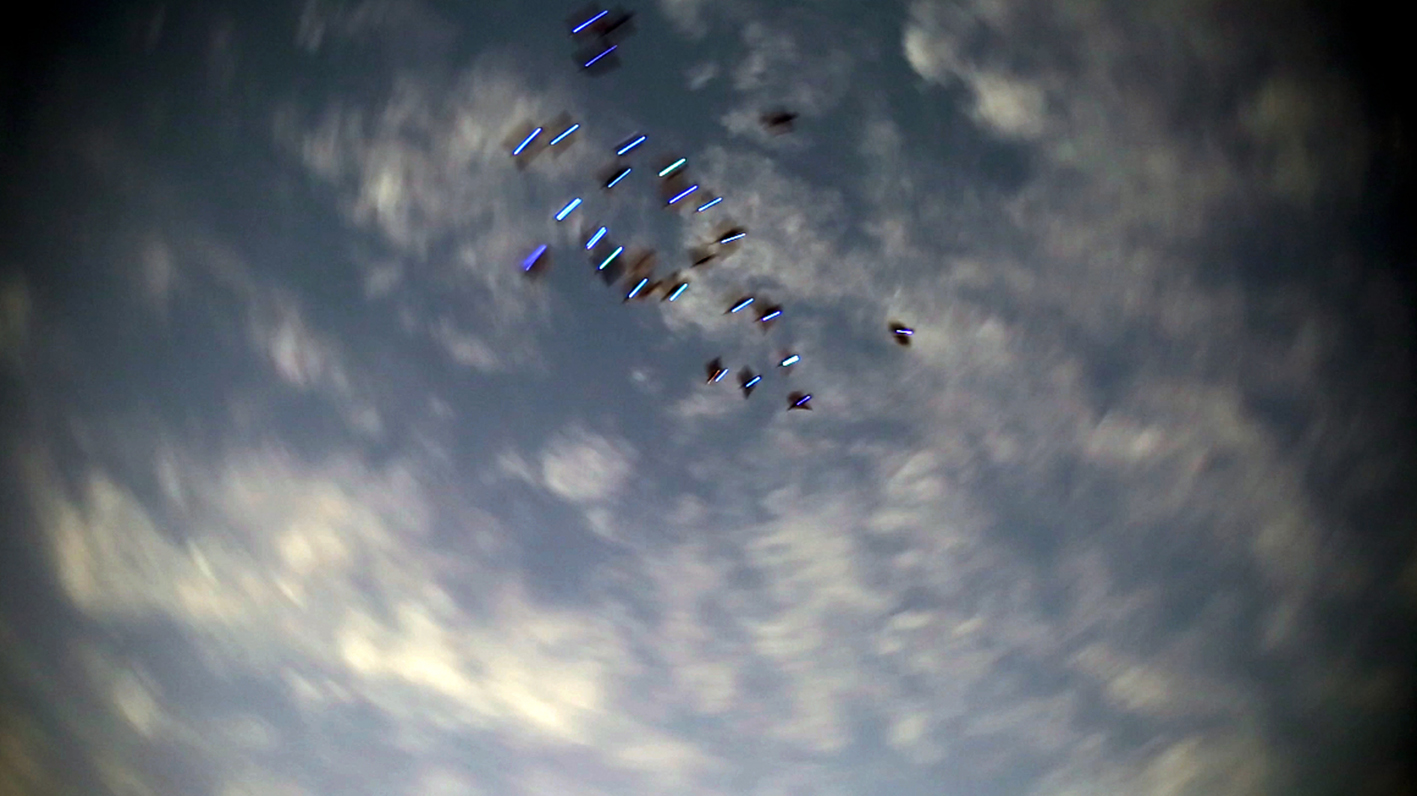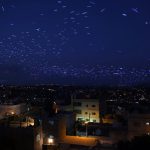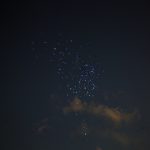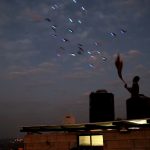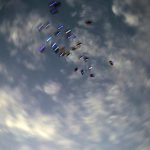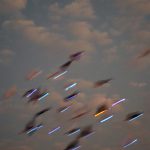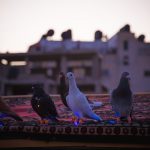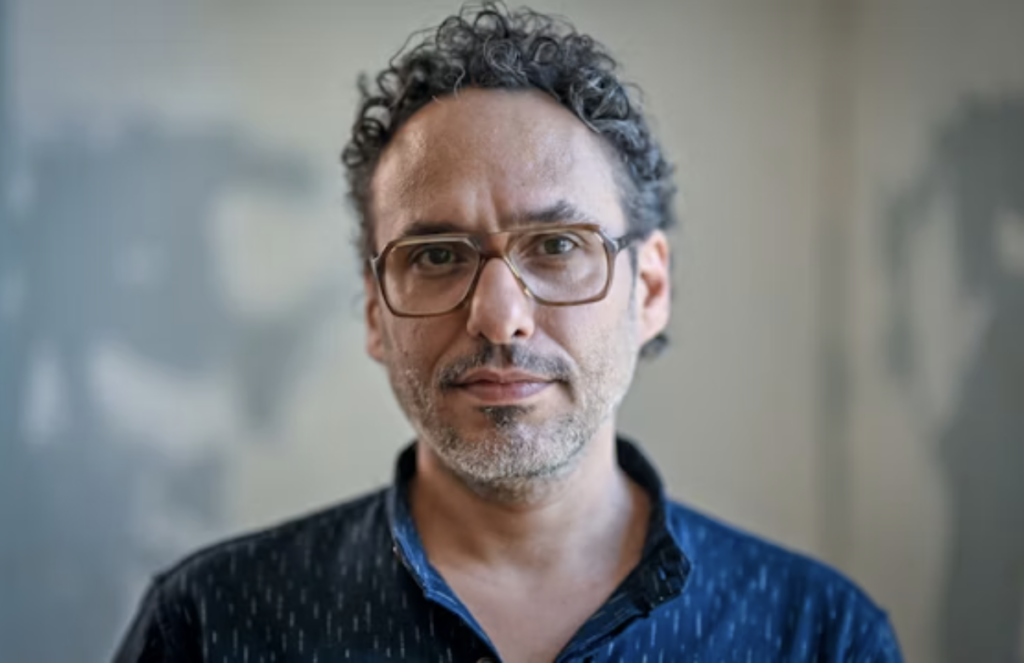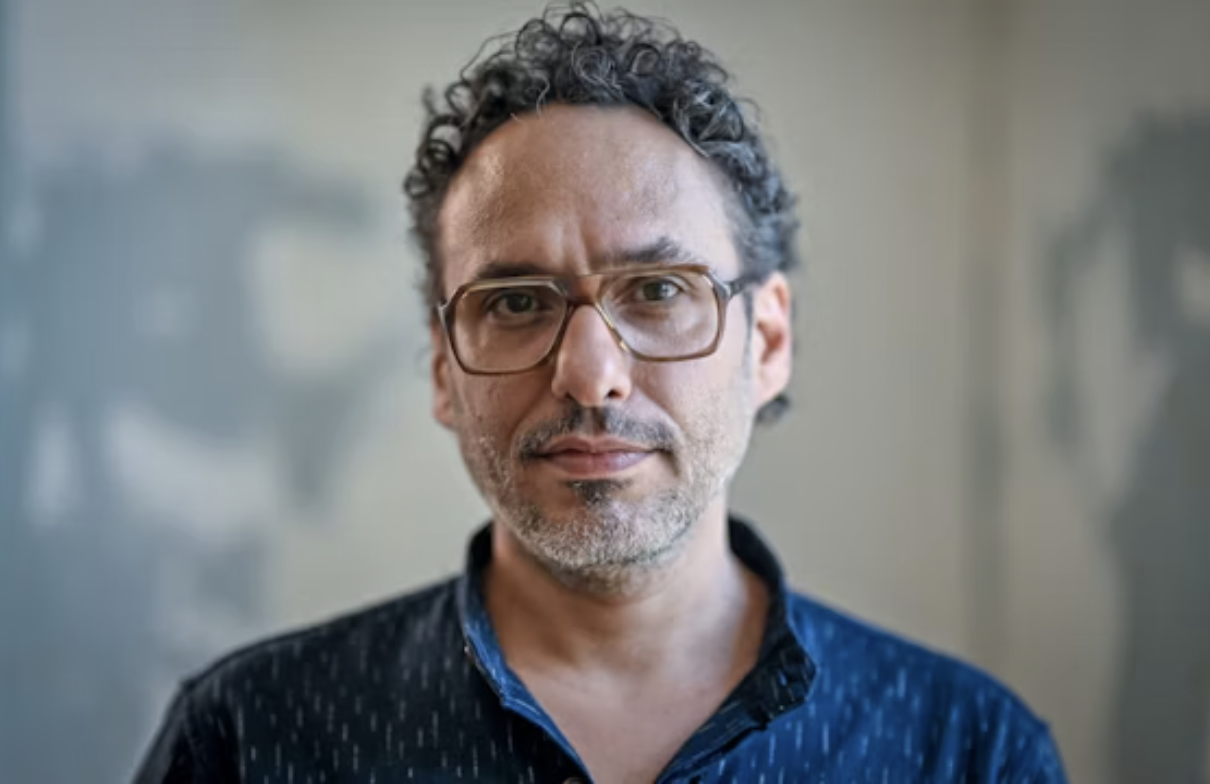About the project
Pigeons have always had a sacred place in Palestine. Today the art of pigeon fancying is a popular pastime, occupying rooftops and peppering our skies with aerial acrobatics. In Flight – Jalazone, tiny LED lights attached to pigeons from local coops bring rays of light to the sky above the Jalazone Refugee Camp. In a performance evoking the sea, pigeons will draw undulating, ephemeral waves in the sky moments before dusk. Multiple currents of blue and amber light enact a metaphoric Mediterranean where man-made and nature, freedom and enclosure, play out in a transitory ballet of holding patterns pointing to migration, both engineered and natural.
Flight is a continuation of Constellations, a body of work I began in 2005 in the Egyptian desert. A subsequent iteration involved putting lights in the cracks of Jerusalem’s Old City walls. The community quickly took to finding them, adorning themselves, trading them, taking them home. This circulation and social dynamic began to define this series and my way of working with communities outside the established art world. Common to all these works is the wonder a little light can bring. Flight marks a departure in scale and the number of communities involved. In the Jalazone Refugee Camp for example, convincing the various political factions to fly their pigeons together was a small victory. A truce, forged in art, emerged that electrified the community as well as neighbouring Camps. These pigeon fanciers have since taken to trading the lights and introducing their own designs and colours. Spontaneous pigeon light shows have now become a regular occurrence. In a conservative society that sternly frowns upon ‘frivolity’ this work has a political undertone that resonates with the community, giving them permission to dream.
External links
About the artist
Nida Sinnokrot is the cofounder - with architect Sahar Qawasmi - of Sakiya an international Art/Science/Agriculture residency programme with a mandate to bring international and local practitioners together for academic, artistic and ecological interventions emphasising sustainable practices across disciplines. Sakiya arose from a belief that cultural initiatives must recognise and halt the extremism affecting our societies, politics and environment alike and as such become a potent artwork in itself.
